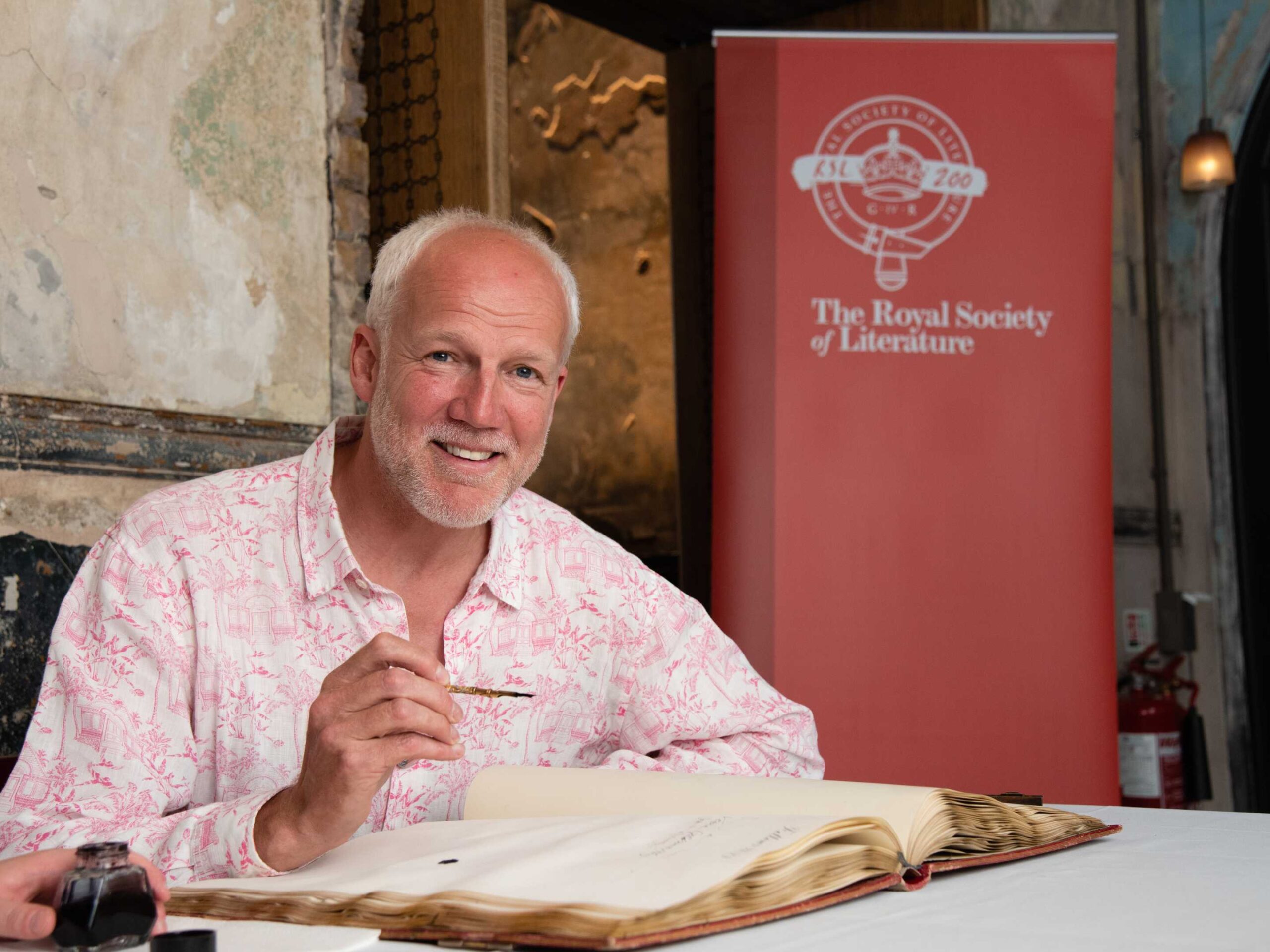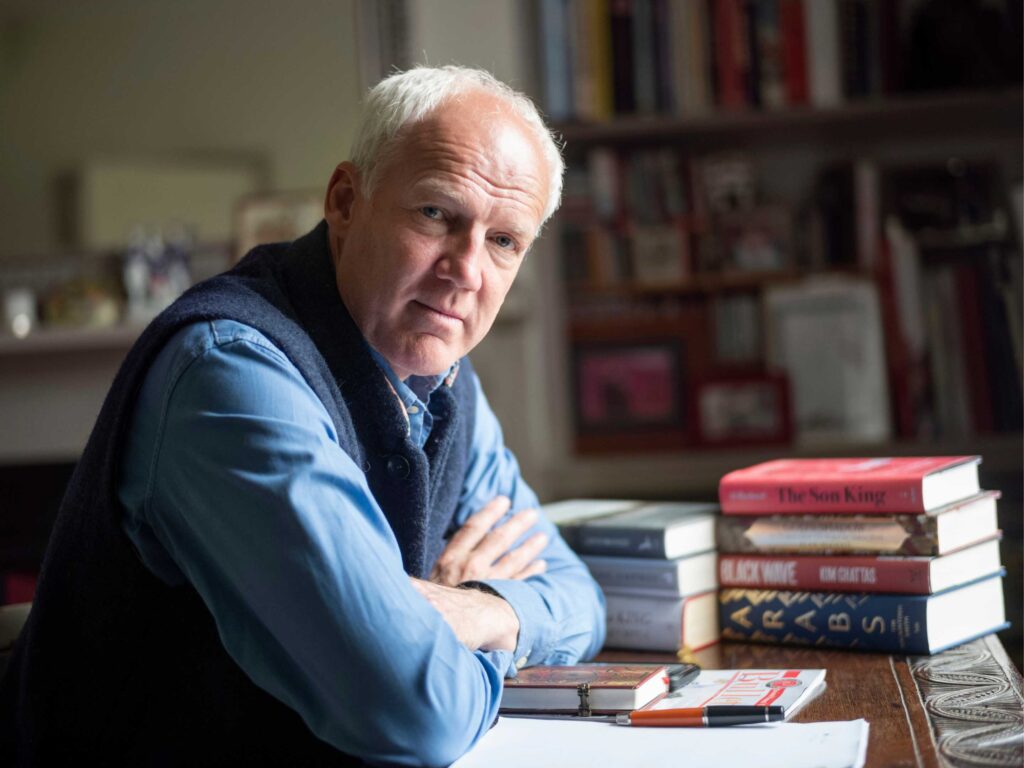
What does it take to become a writer? Justin Marozzi, Br’94, knows the ins and outs of this career path, which can bring liberation creatively, yet might also be financially worrisome pragmatically. The writer’s pen called to Justin at an early age and today he is a writer, journalist, historian and communications advisor for conflict and post-conflict environments.
Sounds like a mouthful but his journey following his studies as a Thouron Scholar is one that many could fashion into a great book or a hit film. “I wanted to write from an early age and the quickest way to set about that after leaving Penn was to go into journalism so I started freelancing for the BBC World Service, a radio station I listen to every day 30 years later,” he reminisces.
The opportunity to study in the U.S. as a U.K. applicant was very appealing to Justin. A man from south-east England who studied at The King’s School in Canterbury, Justin was prepared for future adventures in historical exploration as a young boy. “My daily commute was either through the fourteenth-century nave or cloisters of Canterbury Cathedral — one of its many highlights, very striking for an impressionable schoolboy, was the tomb of Edward, the Black Prince,” he shares.
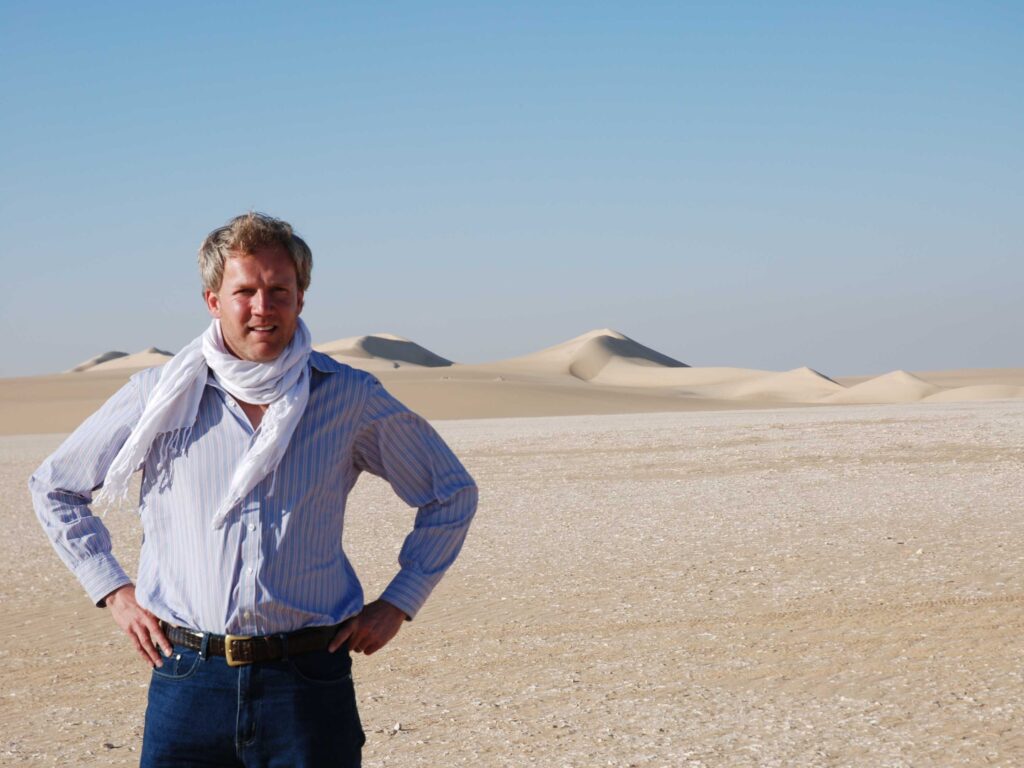
The Pique of Wander
With the Thouron Award, an entire new world opened up for Justin. After graduating with a degree in History from Gonville & Caius College at Cambridge University, he began pondering the possibilities. As has been the case for many Scholars, Justin came to apply for our fellowship award because he was unsure of what ‘work’ meant for him following his studies at Cambridge. “I think I wasn’t quite ready for the world of work and the Thouron Award looked like a productive way of postponing it for another year,” Justin admits. Though, he asserts the Award did open the door to a great opportunity to live and study abroad.
“The Thouron Award was an amazingly generous opportunity to study in the U.S. Quite simply, I wouldn’t have been able to study there without it. In the mid-90s, Tiger Thouron was very much in evidence, casting his benevolent eye over the British Thourons at Penn and the U.S. students in the U.K.,” Justin recalls. It was Tiger’s charisma, kindness, and humour — plus the notion of joining an extended family as a Scholar, that made Justin feel encouraged.
After graduating from the University of Pennsylvania with his master’s degree in Political Science — which he jokingly admits to rebranding as ‘International Relations’ — Justin went into journalism by freelancing at BBC World. But first, he had to take a worthwhile detour, in part influenced by a class he took at Penn on the history of Jazz & Blues. “To be honest, because I wasn’t always sure Polisci was really my thing, I also spent huge amounts of time away from my studies at Penn, enjoying the Racquet Club of Philadelphia, where I took up cigars, cocktails, rackets, and real tennis. I also went to New Orleans for Mardi Gras, got mugged there, and filed [the] story for the BBC World Service,” he states.
Eventually, Justin would get his big break writing on foreign affairs for the Financial Times. “After weeks badgering the then foreign editor, I joined the FT on a sink-or-swim basis, spending six months on the Companies desk under a stern but very good editor, before a job as a ‘super stringer’ came up in Manila,” he shares. In this role, Justin was only paid if his story ran in the paper — which meant he felt strongly incentivized to file stories or starve.
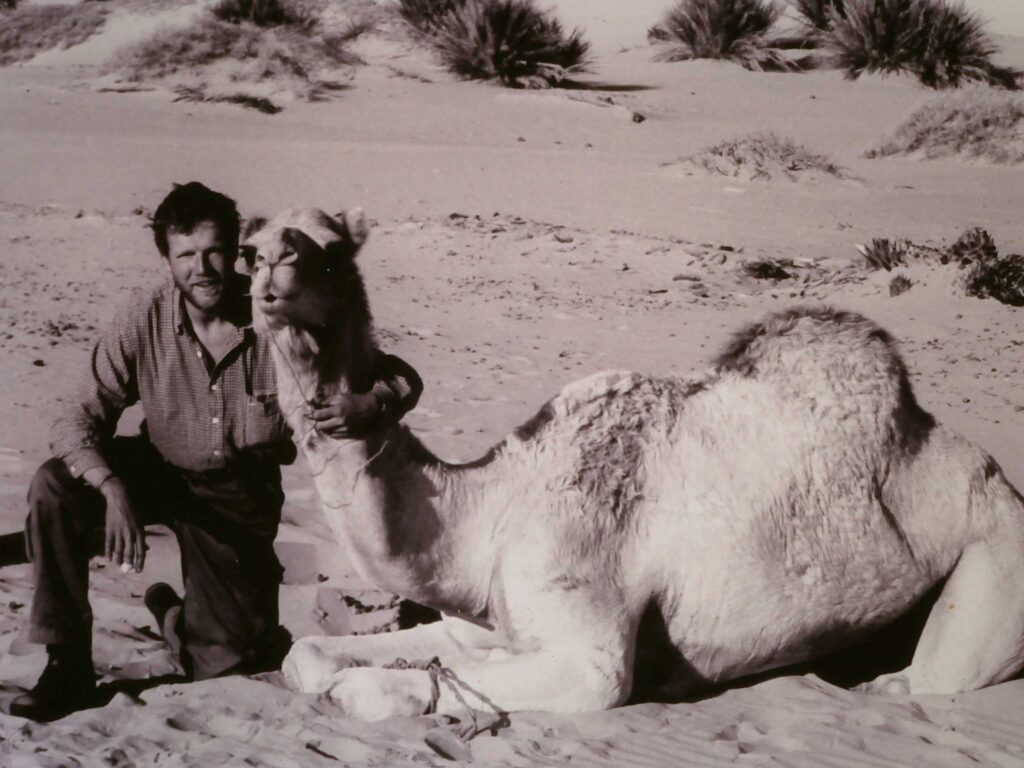
Desert Roads Few Have Travelled
Nonetheless, Justin’s time travelling as a journalist wasn’t all near-dire. He spent multiple years in the Philippines and had the best time. Something else was calling him on this adventure, something he had put off for a bit. “For years, I’d wanted to write a book about crossing the Libyan Sahara by camel, so that’s what I did next. A friend and I bought five camels and set off southeast from Ghadames, an ancient Saharan oasis and former slave market,” Justin explains.
By the end of their three-month journey, they reached their stopping point at Kufra. The experience remains one of Justin’s favourites as the desert felt like a second home to him, but also because it was the birthplace of his first book, South from Barbary: Along the Slave Routes of the Libyan Sahara.
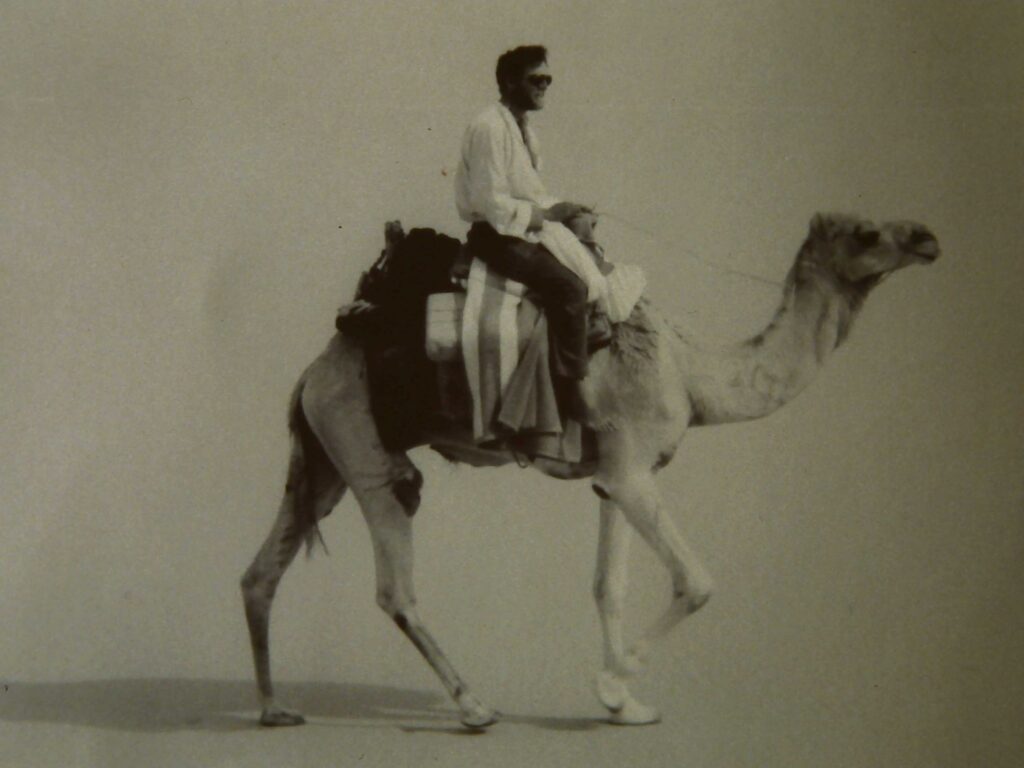
“No amount of studying at home or in archives and libraries can replace that sort of first-hand research. Living in Iraq for much of the period between 2004-10 gave me a huge amount of experience which was invaluable for the Baghdad book. And it was the same again for another recent book, Islamic Empires: Fifteen Cities that Define a Civilization. I’ve travelled to 13 of the 15 — one of them, Mecca, is closed to non-Muslims — and that first-hand experience was absolutely critical to my writing about every one of them,” Justin affirms.
Over the past 20 years, he has written six books in total since South from Barbary. The several months Justin spent travelling in Afghanistan, Uzbekistan, and Pakistan, Syria, and Lebanon were “unbelievably helpful” for the research needed to write Tamerlane: Sword of Islam, Conqueror of the World. While Faces of Exploration functions as a collection of portraits of the 50 greatest and most prominent explorers of the 20th century. For The Way of Herodotus: Travels with the Man Who Invented History, “…Taking Herodotus, the fifth-century BC Father of History out ‘on the road’ in Iraq, Egypt, Turkey, and Greece seemed to me to be essential when you’re trying to write about a man who was as much a traveller as he was a historian,” Justin discloses.
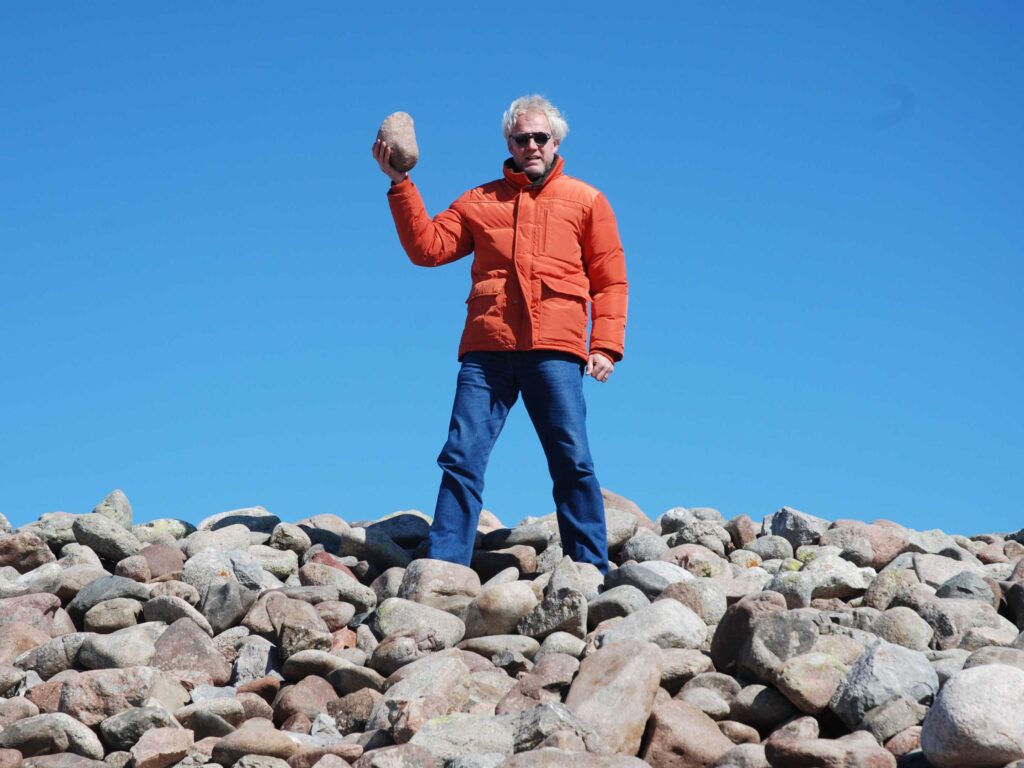
With all of this travel and time spent away from home, it might be presumed as a hardship and filled with loneliness or homesickness. Justin holds a different, informed perspective. “Writers mostly work alone and inevitably it’s quite a lonely experience,” he shares. Don’t shed a tear for him just yet, as Justin has many accomplishments and fulfilments in life!
“Some of the most exciting and challenging work I’ve ever done has been as an advisor to two heads of state — in Libya and Somalia — on behalf of the U.K. government, during periods of intense instability and conflict. I’m not sure I would call it pride, but knowing you have given it your all brings some satisfaction — no matter how desperate the situation,” he states.
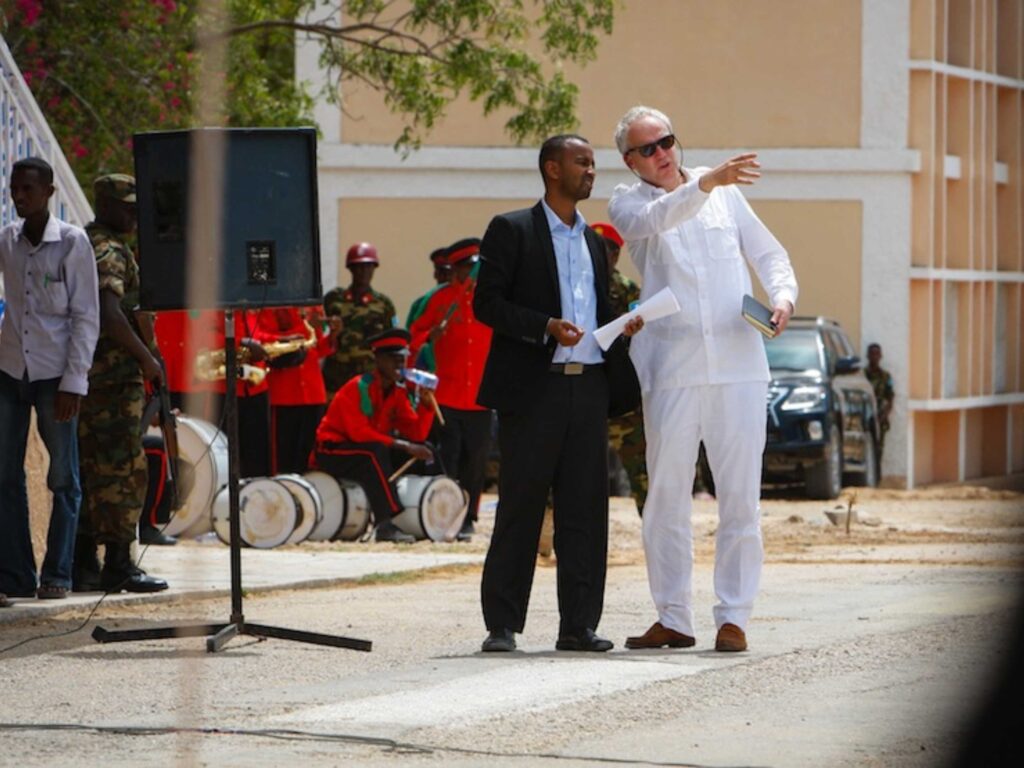
All Roads Lead Home
When not saving himself, or a country’s head of state, from disaster, Justin indulges in his passions that aren’t predicated on the written word: classic cars and deer-stalking.
“Classic cars have been a great interest for a number of years, specifically Bristols. I’ve owned Frieda, a 1956 Bristol 405, since 2009, and have pledged never to sell her. In 2022, my wife Julia and I drove 6,205 miles from the U.K. to the Syrian border and back with a group of…slightly eccentric Bristol owners — that was a trip of a lifetime,” Justin happily recalls.
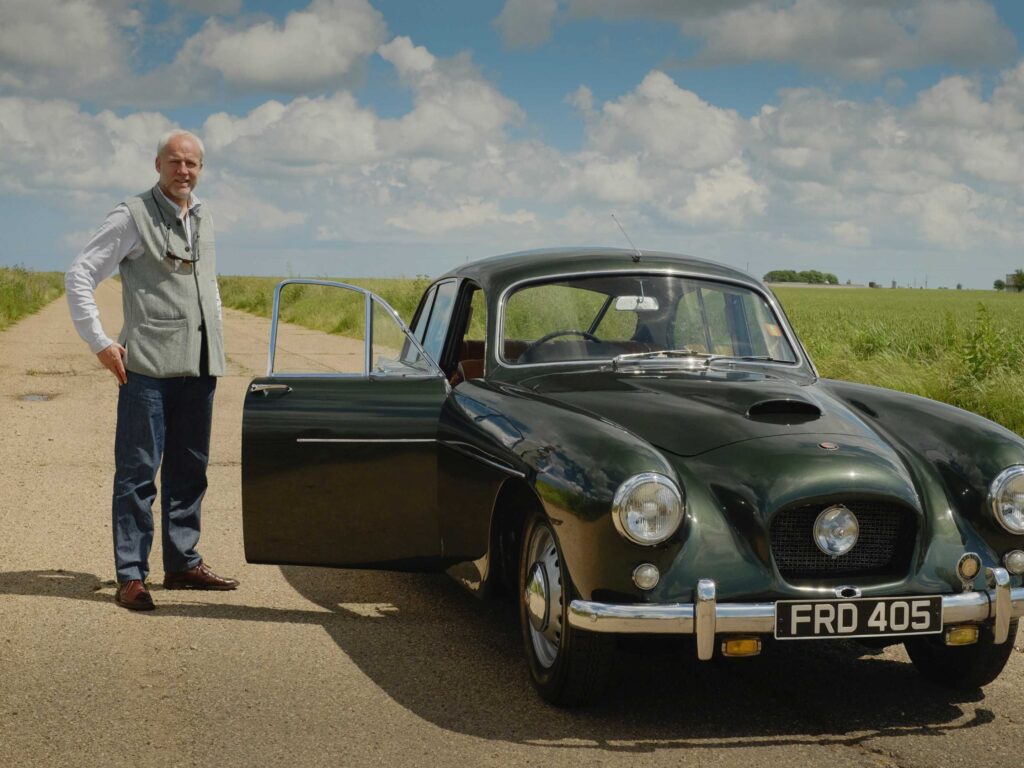
The deer-stalking is a recent development in his life. There are an estimated 2 million deer in the U.K., which is a higher population than at any point during the country’s history. In eastern England, where Justin lives, the number of deer have increased causing a challenge for farmers, drivers, and the environment. “It’s a great source of ethically sourced, sustainable meat,” he claims. Another hobby and project that takes up some of Justin’s time is being the editor for the Bristol Owner’s Club magazine, Bulletin, which he finds a welcome change of pace from covering conflicts in the Middle East and beyond.
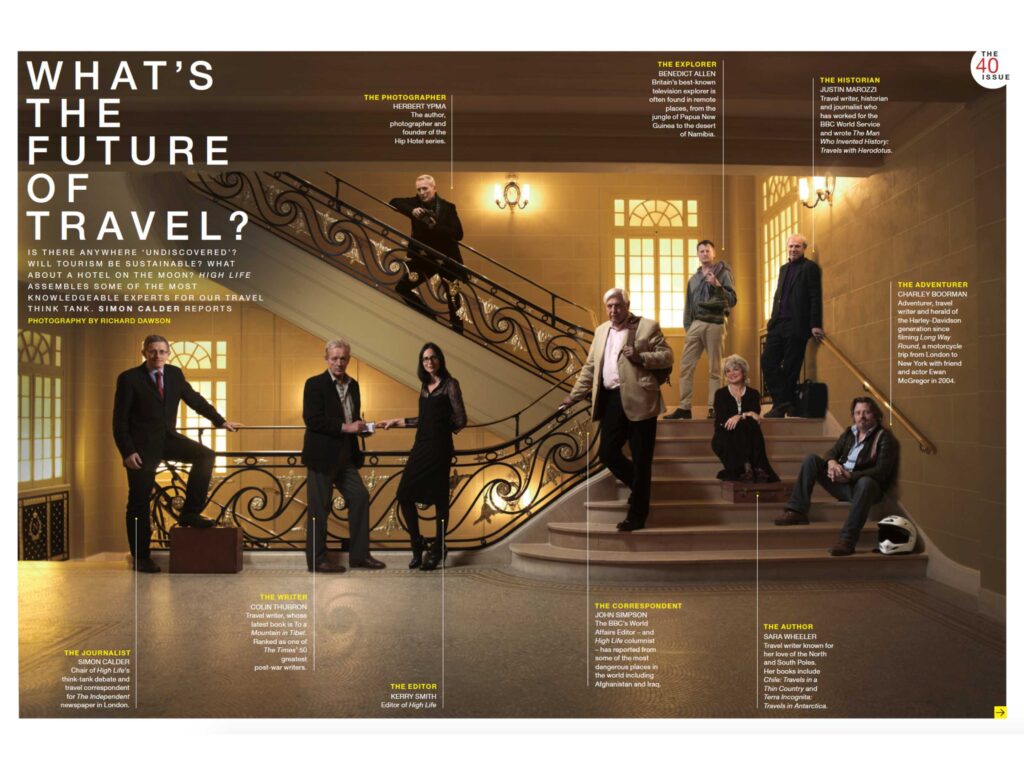
As careers go, Justin’s is quite aspirational for the budding writer or anyone who doesn’t see a linear projection in their story of life. Yet, he didn’t place himself in these wondrous scenarios for accolades, as he has a modestness that might be coveted by many well-respected writers and journalists. “It’s a mistake, I think, to expect any recognition, or at least it’s a very quick way to be disappointed. So it was a great, morale-boosting honour to win the Royal Society of Literature’s Ondaatje Award for my history of Baghdad in 2015,” Justin shares. Admittedly so, he knows how difficult, albeit impossible, it can be to earn a living writing books. “You always have to do other things and that’s something that I have always seen as a privilege rather than a burden,” Justin imparts.
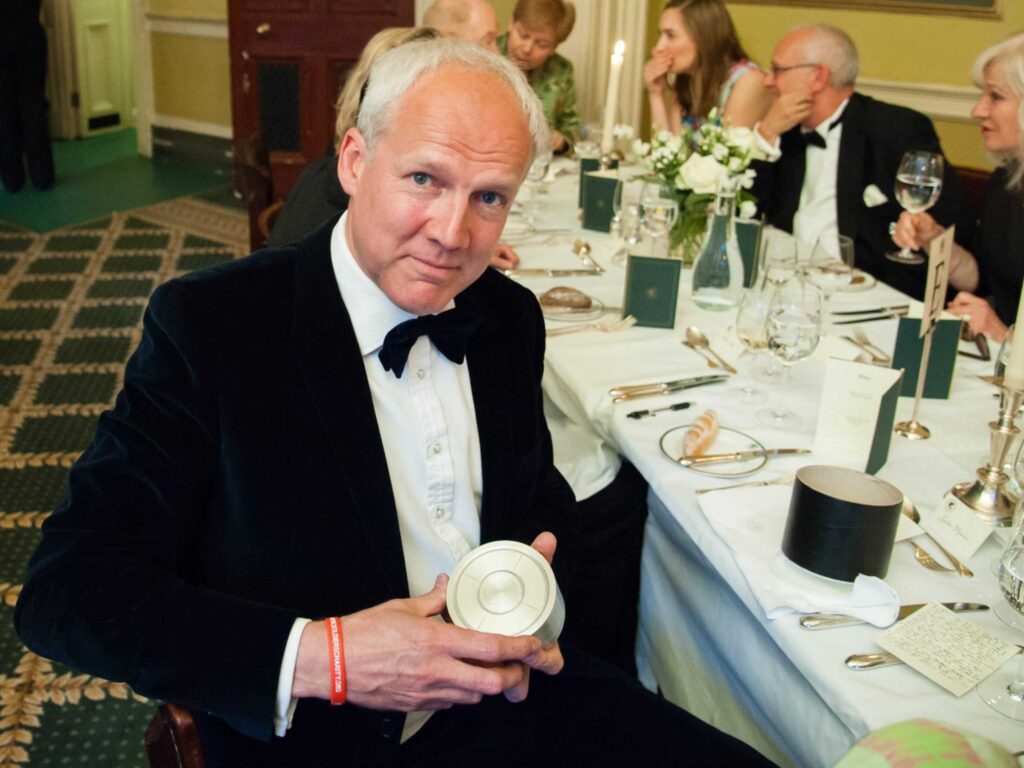
Until the Next Adventure
What awaits Justin on the road least travelled? His new book, Possessed: A History of Slavery in the Islamic World, will be published by Allen Lane in 2025. He has also been supportive in the Ukrainian conflicts. “I’ve been working a lot in Ukraine recently for a really remarkable organisation called MOAS, a humanitarian disruptor. To date the 150 all-Ukrainian medics that MOAS employs have saved 40,000 lives and counting — I was so impressed I signed up to support MOAS by promoting its very special work,” Justin shares.
As someone who believes very strongly in having no regrets, Justin carries a quote from St. Augustine as a reminder that walking your individual journey can have a greater impact than you ever imagined. “St. Augustine is supposed to have said back in the fifth century: solvitur ambulando, it is solved by walking. I think that’s just as true for dealing with some mental health issues as it is for the contemporary historian on a research mission,” Justin opens up.
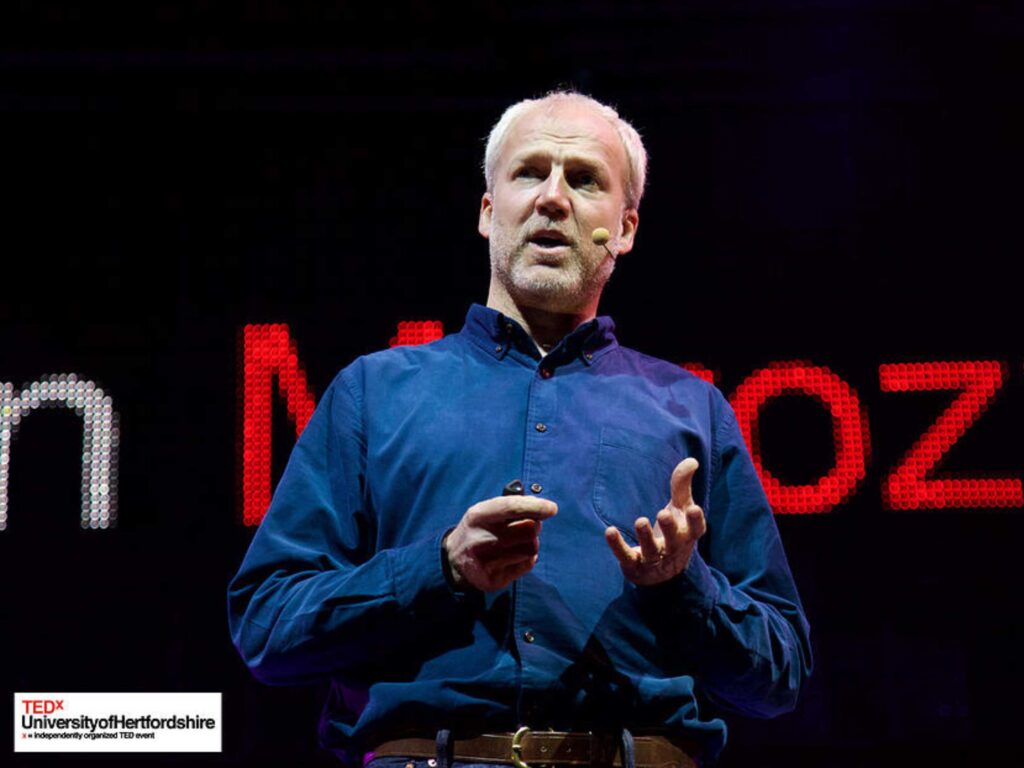
For the future of the Thouron Award, Justin hopes that it continues to grow in strength while reaffirming for all students the importance of historical and cultural links between the U.S. and the U.K. “I think the world is a better place for it. The level of connection changes over the years as people connected to the Award and its administration come and go, but it’s always there and it’s something I genuinely appreciate — one of my oldest friends was a Thouron from the mid-90s and we’re still in touch,” Justin fondly states.
Are you interested in becoming a Thouron Scholar?
Learn more about the Thouron Award — one of the most prestigious and generous academic scholarships in the world.
